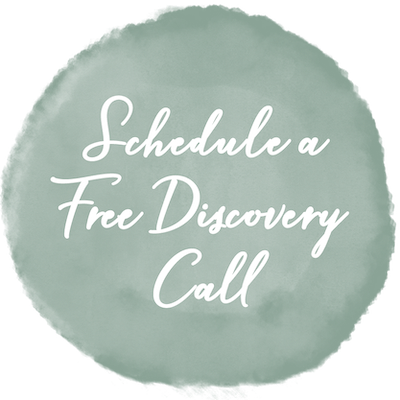In this blog post, I want to explore a feeling that might arise for you on your recovery journey that you don't expect. And when it shows up, it might feel confusing and possibly frightening.
It's a sense of loss, of sadness, and sometimes of deep mourning. Not necessarily for all parts of the eating disorder, but for so much of it - the single-minded focus of it, the daily purpose of it, the numbing effects of it, the sense of companionship and identity that often come from it….
And if you find yourself feeling this way, you might wonder if something is wrong with your recovery. You might be wondering, "Why am I sad about losing something that was making me so miserable?" or "Does this mean I don't truly want to recover?" And as I did, you might be feeling ashamed of these feelings, and worrying that admitting them means you aren’t committed to getting better.
However, from all of my reading and trainings, conversations with others, and my own experience, I know that experiencing this means there is absolutely nothing wrong with you or your recovery at all. And I want to tell you that these feelings are not only normal, but that I believe they're a sign that you're truly doing the deep work of recovery - of really changing from the inside, and truly letting the eating disorder go, which is such a huge thing. And I believe that these feelings truly deserve to be acknowledged, understood, and honored as part of your healing journey.
Understanding the Paradox
To understand why we might be grieving the loss of our eating disorder, I think it helps to understand what our eating disorder provided for us. For many of us, the eating disorder likely served as:
- A coping mechanism during overwhelming times
- A sense of identity when we felt lost or unsure of who we were
- A feeling of control when everything else felt chaotic and out of our control
- A way to feel special or unique
- A companion, albeit a harmful one, during periods of loneliness
- A way to distract from other emotional pain
- A source of structure and predictability
So it makes sense to me that when we begin to let go of our eating disorder behaviors and thoughts, we're not just losing the painful aspects - we're also losing these functions that the eating disorder served, even if they came at such a huge cost.
I sometimes find that it can be helpful to think of it like ending a relationship with someone who was both harmful to us but very important to us. Even when we know that the relationship wasn't good for us, even when we know that ending it is the right choice, there can still be a sense of loss for the good parts, for the role that this person played in our life, and for the version of ourselves that we were in that relationship.
This Grief is Valid
Your grief does not mean that you want to go back to your eating disorder in a literal sense. It also doesn't mean that you're not grateful for your recovery or committed to it.
Your grief means that you're human. It means that you're acknowledging the full complexity of your experience, rather than perhaps oversimplifying it into good and bad.
The Many Forms Grief Can Take
This grief can show up in different ways for different people. For example, you might find yourself:
- Feeling sad or empty as eating disorder thoughts become quieter
- Missing the simplicity of having rigid rules to follow
- Feeling anxious about who you are without the eating disorder
- Experiencing a sense of confusion about your identity
- Feeling fear about facing emotions that used to be numbed with eating disorder behaviors
- Having moments of nostalgia for certain aspects of your eating disorder
- Feeling lonely as you step away from eating disorder communities or behaviors that connected you to others
I believe that all of these experiences are part of the natural process of letting go of something that, however harmful it may have been, was a significant part of our lives.

Moving Through the Grief
As hard as this can be, I believe that the goal isn't to rush through these feelings or to talk ourselves out of them. Like any grief, I believe that this process benefits from time, patience, and as much compassion as possible.
Here are some ideas for ways to honour and move through this experience that might resonate with you:
Allow the Feelings: Try to give yourself permission to feel sad, scared, or confused without judgment. This blog post on working through difficult feelings on the recovery journey may feel helpful for you right now.
Seek Understanding: Work with a therapist or your support system to explore what specifically you're grieving. Understanding the why behind our feelings can often help us process them more fully.
Honour What Was: Give yourself permission to acknowledge all of the ways that your eating disorder did serve you (while trying not to forget all of the ways that it also harmed, and has now been outgrown).
Create Ritual: Some find it helpful to create a ritual to honour this phase - for example, writing a letter to your eating disorder, creating art that represents your journey, or having a conversation with a trusted person about what you’re letting go of.
Focus on What You're Gaining: While honouring your loss and grief, try also gently reminding yourself of what you're moving toward, whatever your own hopes and dreams for your recovered life are - more authentic and vulnerable relationships, a deeper sense of self-worth, freedom from anxiety and compulsions, increased ability to be present and to feel love and joy and a wider range of emotions, whatever feels most inspiring for you….
Be Patient with the Process: The grief may come in waves. You might feel ready to move forward one day and then sad about letting go the next. This back-and-forth is normal and does not mean you're moving backward.
The Other Side of Grief
I find that this sadness and sense of loss will ease with time. And that what often emerges on the other side is a deeper appreciation for the life you're building in recovery, and even a sense of gratitude for what the eating disorder has taught you about your own resilience and capacity for healing. Many people further on in recovery describe actually feeling grateful that they went through their eating disorder - not because they would choose it again, but because of who they became through the process of healing from it. The strength, self-compassion, and wisdom that recovery requires often become some of our greatest assets and most cherished aspects of who we are.
You're Not Alone
If you find yourself experiencing this grief, know that you're not alone, and that you're not doing anything wrong. Know that this is part of the territory of deep healing and transformation. That it’s a sign that you're not just changing behaviours on the surface, but that you’re truly transforming and healing on a very deep level.
Your eating disorder may have been with you for a long time, and through many important moments and transitions in your life. It makes so much sense that there would be some sadness in saying goodbye, even when that goodbye represents a freedom you long for. And try to remind yourself that grieving the loss of your eating disorder does not mean that you'll always miss it. That this is simply a stage, a tough but necessary stage, of the healing journey. You are doing amazing.
With deep empathy and compassion for every phase of your recovery journey,

Journaling Prompts:
- List all the ways you can think of that your eating disorder helped you. Try identifying the roles that it played in your life - eg. as a coping mechanism, a source of identity, a way to feel in control… or something else entirely. Understanding what you're grieving can often help to process the loss more fully.
- If you could write a letter to your eating disorder, acknowledging both the harm it caused and what it tried to give you, or did give you, what would you say?
- What feelings come up when you imagine your life without your eating disorder? Try to explore not just the positive feelings but also any fear, sadness, or uncertainty. I believe that all of these emotions can coexist and that all are valid parts of your recovery journey.
- As you grieve what your eating disorder provided, try to think of some new ways that you might begin to meet these same needs. For example, if your eating disorder provided a sense of control, what might be some ways you might cultivate healthy control in your life? If it provided a sense of identity, what might be some ways to begin exploring who you are beyond your eating disorder? This might be something to explore with a therapist as well, and over time.
Support For Your Journey
If you feel you could use more support on your eating disorder recovery journey I would love to connect with you. Contact me to book a free video discovery call so that we can explore if working together would be a good fit. I would love to hear from you.











